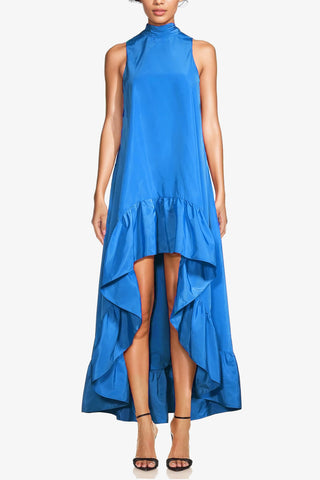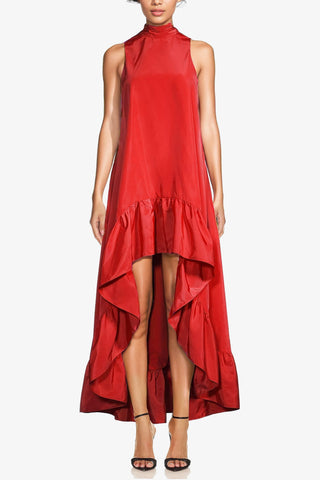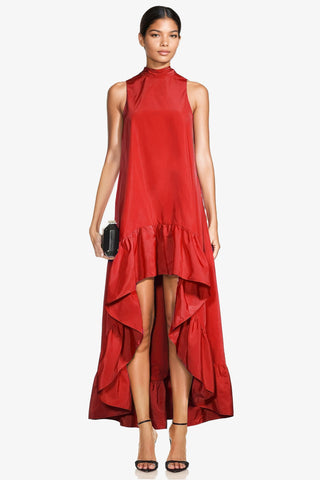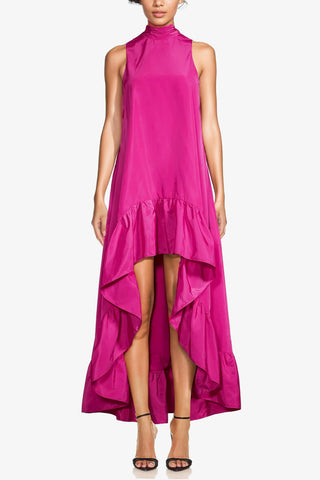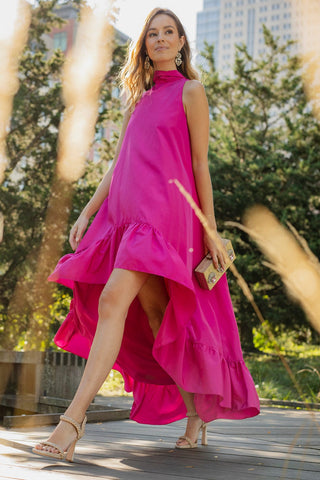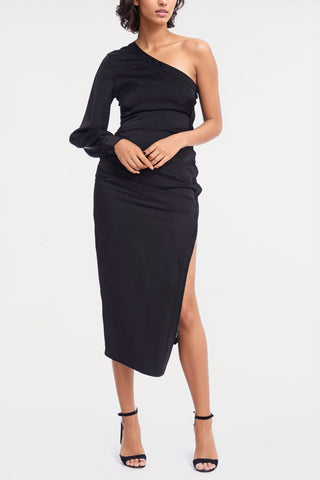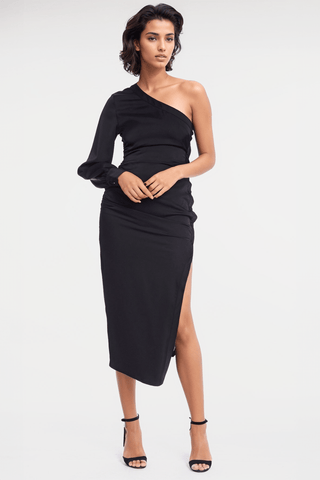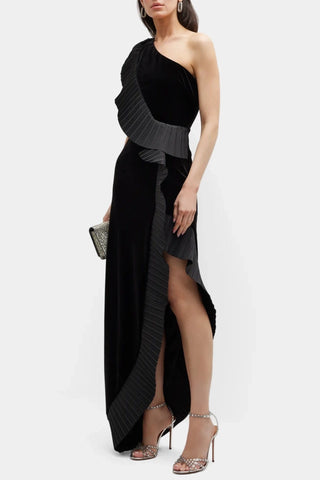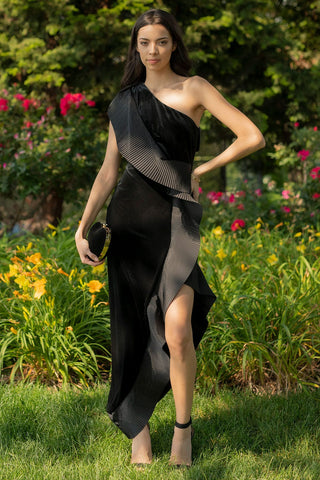Your career transition from law to literature is inspiring. What was the pivotal moment that made you decide to pursue writing full-time?
My first novel, THE DARLINGS, was published in 2012. Shortly before its release, HBO purchased the film rights, with plans to develop it into a limited series. The producers asked if I would be interested in working on the script. It was a dream opportunity, one I felt I couldn’t pass it up. I told myself I could always go back to law if writing didn’t work out. I’ve been very fortunate. Between writing novels and screenwriting, I’ve managed to keep busy and gainfully employed ever since.
Balancing a successful career with motherhood is a challenge many women face. How do you manage your time and maintain boundaries between work and family?
Not all that gracefully! I wish I had a good answer to this question. There have been times over the past decade where I’ve really prioritized work and it’s taken a toll on my family life. Currently, I’m taking a step back from work in order to be more present for my children. I personally do not aspire to have balance on a daily, weekly or even monthly basis. I think that’s a lot of pressure. Instead, I try to focus on what season I’m in. Is this a season in which I’m going to be productive at work? Or is it a season where family comes first? Writing is a project-based enterprise. That can be scary - I don’t always know where and when my next opportunity will arise. I am, to some extent, able to allow my work to ebb and flow, and that is a great gift.
Your novels often explore intricate personal and financial worlds. What draws you to these themes, and how do they relate to your own experiences?
I grew up in New York, and both my parents worked in finance. I spent my twenties working in finance, both as an investment banker and corporate attorney. I find finance fascinating. It’s like opening up the back of the clock and seeing how all the gears move. Finance touches everything: from world politics to family dynamics. I like using my professional background in my writing. I try to draw connections between the world of finance to larger themes that I think are universally interesting: power, inequality, human connection.
Fashion can be a powerful tool for self-expression. How has your style evolved since becoming a full-time author, and what role does fashion play in your daily life?
I work from home, so I no longer need a “work wardrobe” the way I did when I was a lawyer. That said, I try to not to wear leggings and workout clothes all day (though occasionally I give into the temptation!). My days are long and not always predictable. I don’t want to waste time changing. I like to dress in a way that allows me to move from lunch with my editor to preschool pick-up to dinner with my husband. I wear a lot of midi skirts and slacks, loafers or ballet flats, button-downs, blazers. I like to add scarves or top coats for pops of color and pattern.
As an incredible novelist, how do you leverage fashion details to vividly establish the scene for your readers? In what ways do you use fashion to enrich your storytelling—by defining characters, evoking emotions, or capturing the spirit of a particular setting or time period?
I’m a visual person. When I write, I try to picture the scene in my head, the way one would a movie. Fashion is such a wonderful way to emphasize a character’s personality. In my first book, THE DARLINGS, there is a male character — Carter Darling — who is a financial titan. I had so much fun describing his wardrobe. There’s a scene where he’s wearing very expensive suede shoes and no coat, even though the weather outside is terrible. One of the other characters finds this curious until he realizes that Carter has a driver and doesn’t need to concern himself with the ignominy of walking in the rain like everyone else. It says so much about him, about who he is and how he likes to present himself to the world.
What draws you to ONE33 Social, and why have their dresses become a go-to choice for some of your special events?
For special events, I love classic designs with a twist. ONE33 Social dresses tend to have an interesting shape or vibrant color, but paired with traditional design. They stand out, but not too much.
As a brand that celebrates confident, ambitious women, we’d love to know: how does what you wear influence your mindset, whether you’re stepping into a writing session, attending a literary event, or a black-tie gala?
I think dress absolutely changes mindset. It’s one of the reasons I get dressed every morning, even if I’m only going to write at my dining room table. I don’t feel put together if I’m in sweatpants or pajamas. I personally think changing clothes helps me focus on the task at hand, be it writing or attending a literary event or black-tie gala. It gets me in the right headspace, so I can enjoy the day and be fully present.
You’ve spoken about the importance of being a “ferocious protector” of your time. How do you ensure that you carve out space for creativity amidst a busy mom, wife, and career schedule?
It’s not easy! Mostly, it’s about fighting that internal battle. I try to map out my week and stick to the schedule I’ve laid out for myself, without allowing getting side-tracked by things (a lunch with a friend, a book reading) that pop up during the time I’ve set out to work. I’m really terrible at saying no. It’s something I’m actively working on. My husband is terrific at it, and I’ve learned from his example. He’s always polite, but he turns down nearly everything that he doesn’t feel is essential for either work or our kids, and he does so immediately and without equivocation. I’ve realized that a quick and definitive no is more appreciated and better for everyone than a late cancellation.
Postpartum depression was a significant challenge in your life. How did this experience shape your writing, and what advice would you give to other women facing similar struggles?
I’m a big believer in seasons. After each of my kids, I was totally unable to write. I was too exhausted to think creatively or concisely. The first time around, it devastated me. I worried I’d never work again. Now, I look back on that time and realize it was just a particular season of my life. Having children is immensely taxing, both physically and mentally. I wish this country was more supportive of parents, and gave them far more time to recover from the arrival of a child before returning to work. It’s something I’m very frustrated by and passionate about. Barring political and societal change, all we can do is try to manage ourselves and our own expectations. I know I had unrealistic goals for myself post-pregnancy, and feeling unable to live up to those was very hard on me emotionally. By my third pregnancy, I was able to give myself a bit more grace. I took comfort in knowing that those early weeks and months don’t last forever, and that I would eventually sleep again, and once I did, I’d be able to write.
As someone who works in a creative field, how do you stay inspired, and where do you find the most inspiration for your stories?
I am so lucky to live in New York City. It’s endlessly inspiring. There are so many stories here. If I’m feeling stuck or uninspired, I take a walk in Central Park or wander through a museum. I people watch. It’s hard not to! Just the sartorial choices alone here are so inspiring.
As an avid admirer of your fictional novels, choosing a favorite is a challenge for me. Do you have a personal favorite, and if so, why? Which book would you recommend for someone new to your work to start with?
My favorite is THE BANKER’S WIFE. I set out with a really specific idea of what I wanted to accomplish with that novel — a fast-paced financial thriller with a strong, female protagonist — and I feel like I was able to accomplish that. That book also came after the birth of my first child, and a long period of creative dormancy, so it felt particularly fulfilling for me to finish it.

A little birdie mentioned you may be turning some of you novels into a TV series. Is this true? Anything you can share with our audience in anticipation?
Two of my books — THE BANKER’S WIFE and the THE DARLINGS — are currently in development. Both have been in development for years, and so I’ve learned to manage my own excitement and expectations about if and when I will ever actually see them on screen. But I’m enormously grateful there has been film interest in both, and being part of that process has been wonderfully fun for me.
In your opinion, what is the most important quality a woman should cultivate to achieve success in her career?
Passion. I’m not sure its possible to be truly successful in an industry about which you aren’t passionate. Success requires so much grit, patience and resilience. Passion is what gets you though.
What are your thoughts on the importance of mentorship and community for women in creative industries, and how have these played a role in your own journey?
Mentorship and community are vital in every industry, but I think particularly so in creative fields. Writing can be such an isolating process. It’s also a daunting one. I never would’ve been able to navigate publication where it not for two college friends who worked in the business and were willing to walk me through the basics of how to find an agent and sell a manuscript. After more than a decade in the industry, I feel so fortunate to have made other friends who are writers and editors, who provide not only feedback and support but a sense of community which I otherwise wouldn’t have. I try hard to pay that forward. Whenever someone introduces me to a new or aspiring writer, I try to be available and make connections where possible. I also try to host book parties regularly, just as a way for creative friends to come together. Particularly in creative fields, I think it’s important for everyone to make a concerted effort to cultivate community and support for one another. It’s hard to do when there isn’t a centralized office to congregate!
















